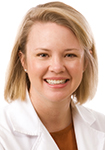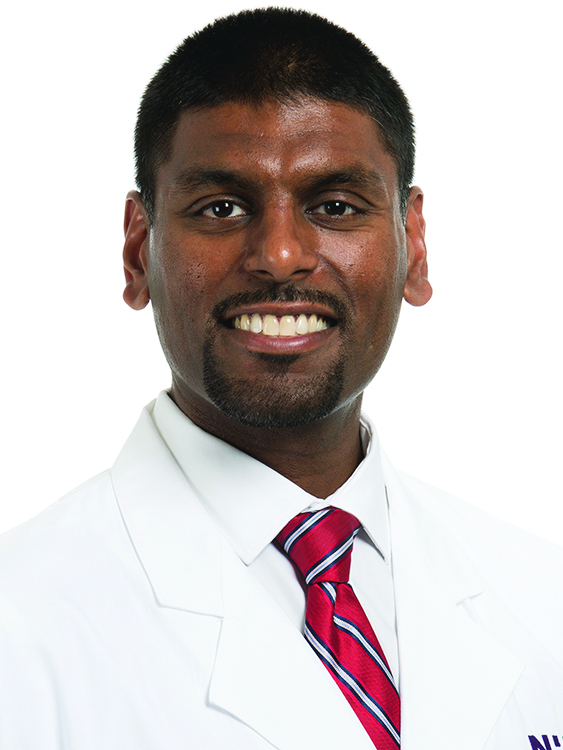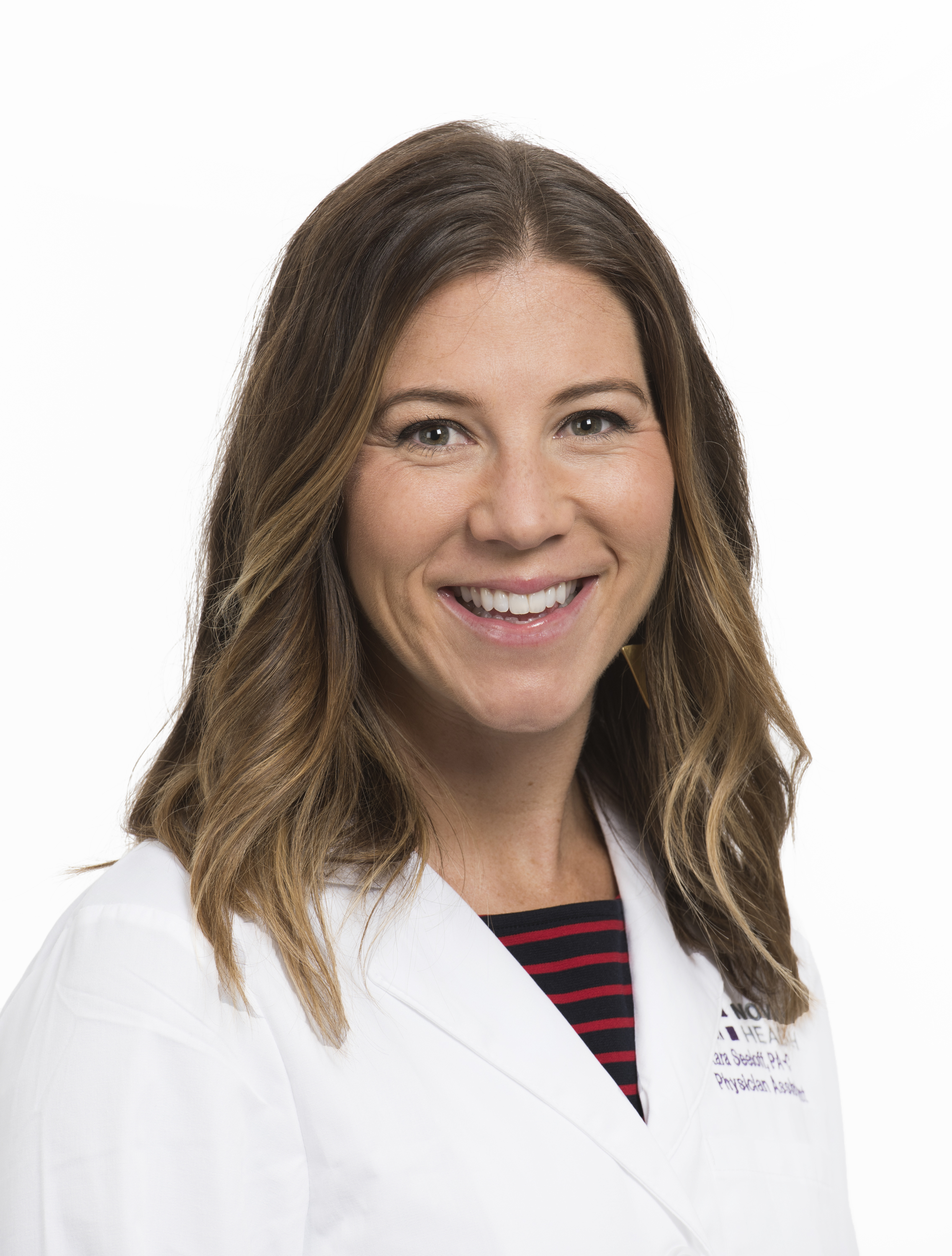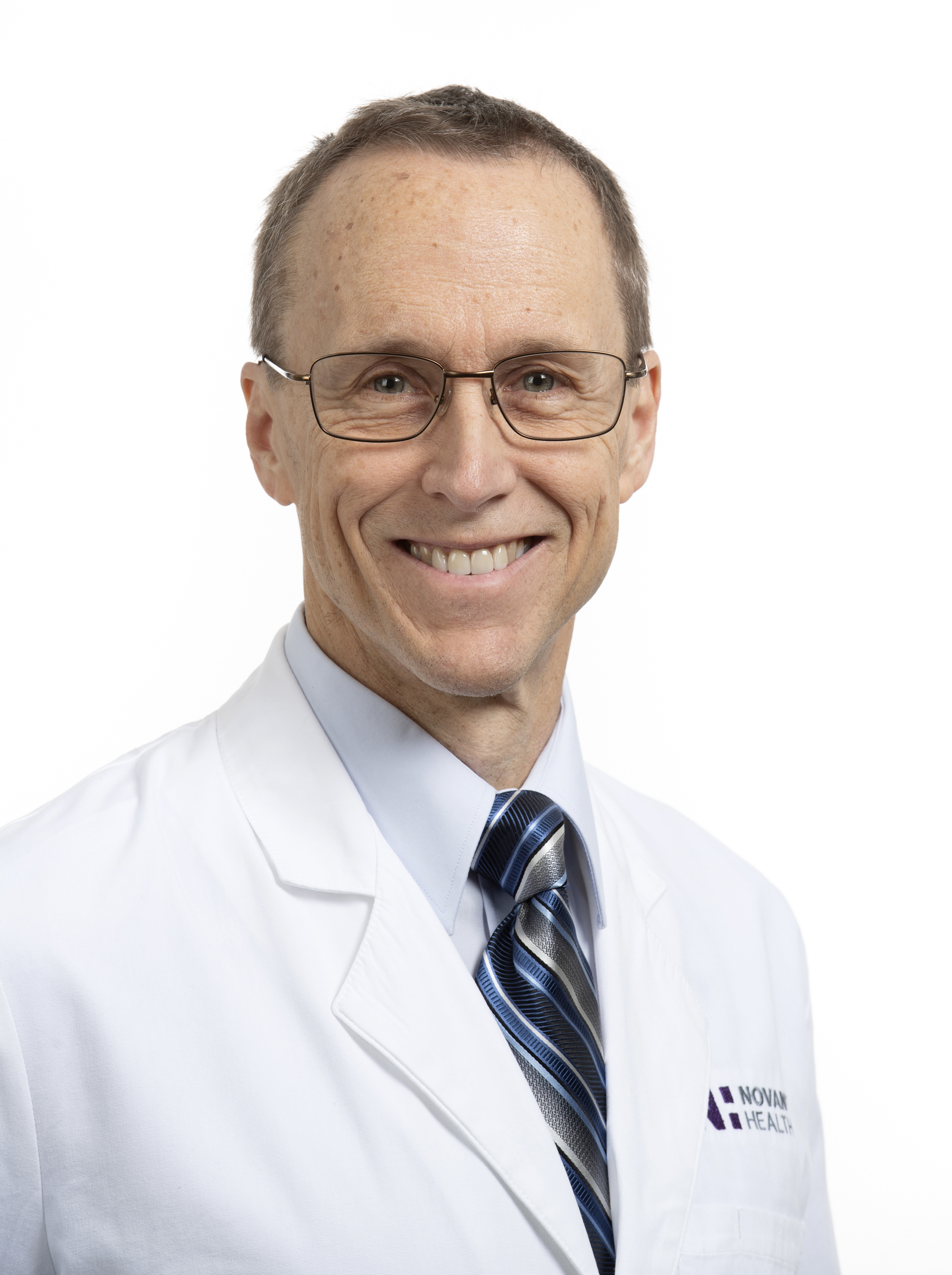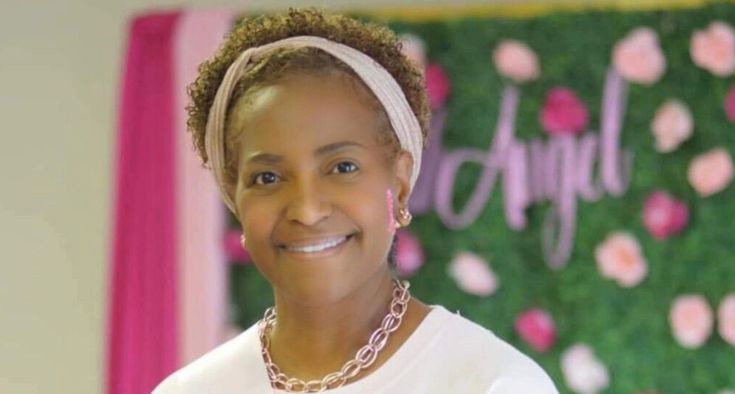Ellyn Fulton had to travel a long, winding path to find the cancer treatment she trusted. And when the San Diego resident finally pulled to a halt, she found herself at Novant Health in Charlotte.
She and her husband, Brandon, drove 21,000 miles – all the way from California – to get the level of care she felt was lacking during her first bout with ovarian cancer. “We zigzagged across the United States,” Fulton said, “and explored several locations in Texas, Colorado, parts of Oklahoma, Arkansas and Tennessee before landing in Charlotte.”
To understand why Fulton, 49, is grateful for her Novant Health care team, it helps to understand what she endured before moving across the country.
In early 2021, the San Diego resident began experiencing intense abdominal pain, discharge and bloating. She reported her symptoms repeatedly to her primary care doctor, who told her it was perimenopause.
Empathetic care from dedicated cancer specialists.
After six months of back and forth with her doctor – and still no answers – she went to the ER and said, “I'm not leaving until you tell me what this pain is.” A CT scan led to more confusion. Her fallopian tube was clogged and possibly bursting. No one suspected cancer; her bloodwork and biopsies came back clean. So, she was put on antibiotics.
‘Blindly following orders’
She was discharged and told to expect a call to schedule the fallopian tube removal surgery within a couple of weeks. Tired of waiting for the call that never came, Fulton called a month later and learned she’d accidentally been put on the nonessential surgery list.
“Suddenly, everybody’s panicking,” she said. “I needed surgery right away. The general surgeon – not an oncological surgeon – removed a fallopian tube and decided to remove my left ovary because she could see cysts that didn’t appear in the original CT scans. And I’m by myself through all this because visitors weren’t allowed in the hospital during the pandemic.”
Two weeks later, she got the diagnosis (by phone) from the surgeon: ovarian cancer.
While still in California, she underwent debulking surgery, where a surgeon removes as much of the tumor as possible but leaves tumors deemed too small behind. In ovarian and some forms of brain cancer, debulking is often used before a patient begins radiation and chemotherapy. It makes those treatments more effective.
Next, an oncologist called and told her she also needed a hysterectomy. She was 46 at the time and still wanted a child.
She and Brandon tried for two years to get pregnant, without success. “It never fully registered what I was about to do – and I know how ignorant that sounds,” she said. “I had a radical hysterectomy, meaning my cervix, uterus, other fallopian tube and other ovary were removed. I signed the sterilization consent paperwork on my way into the operating room, and that’s when it hit me. I was just blindly following doctors’ orders.”
Dr. Kellie Scheider: Why team treatment is so important on complex cases
When a cancer patient needs treatment from a variety of specialists from different disciplines, an oncologist is typically the first doctor the patient meets and the one who develops a treatment plan. The oncologist quarterbacks the care team.
In this case, that was Dr. Kellie Schneider with the Novant Health Cancer Institute – Elizabeth, in Charlotte. She’s a surgeon who specializes in gynecologic cancers and a fellow at The American Congress of Obstetricians and Gynecologists.
But no one doctor can do it all when it comes to cases with extra layers and challenges, she said. That’s why Novant Health utilizes teams of specialists who work together on cases like this. (In medical-speak they’re call multidisciplinary teams.)
“I try to figure out what each patient will benefit from,” Schneider said. “Some patients – like Ellyn – love the integrative medicine program,” that offers a broad array of services that help treat the whole patient as they cope with treatment side effects and other challenges.
“Others feel overwhelmed and can’t fit one more appointment in their schedules. I work to figure out what will make each patient’s experience better.”
Schneider appreciates being able to refer patients to specialists in other areas. “It’s great to have in-house experts who can address nutrition, psychosocial components, exercise, meditation,” she said. And she understands those needs all too well. Schneider herself is a breast cancer survivor.
In Fulton’s case, Schneider didn’t just engage nutritionists and therapists. She brought in a surgeon who specializes in complex cases. “Ellyn was unique because her recurrent surgery was an abdominal wall surgery,” she said. “That’s not my specialty, but it’s something Dr. Latchana does all the time.”
There’s mutual admiration between patient and physician. “Ellyn is willing to ask for and accept help. She has put in the hard work; it’s not easy getting to all these appointments and seeing all these different doctors,” Schneider said. “She’s really in the driver’s seat with her care. She’s a strong advocate for herself.”
At the same time, Schneider was there to make sure all the bases. As Fulton says today: Schneider was just the doctor she needed.
Head east
The cancer Fulton has – ovarian cancer with BRCA1 positive – is often accompanied by breast cancer. Fulton hasn’t been diagnosed with breast cancer, but she knew there was a chance she would be. And if that happened, she wanted easy access to more compassionate care.
So the Fultons set out in November 2021 to find a higher level of cancer care. They bought a 31-foot Heartland Mallard trailer and headed east.
No longer blindly following doctors’ orders, Fulton was doing her own research. She’d learned that her cancer has a high likelihood of returning.
The nomadic Fultons traveled much of Texas but couldn’t get into MD Anderson Cancer Center. Next, they traveled north through Oklahoma to the west side of Colorado and settled in a small town in the Rockies for homeopathic care. But the thought of recurrence was unnerving; Fulton wanted to get to a bigger city to access specialty care.
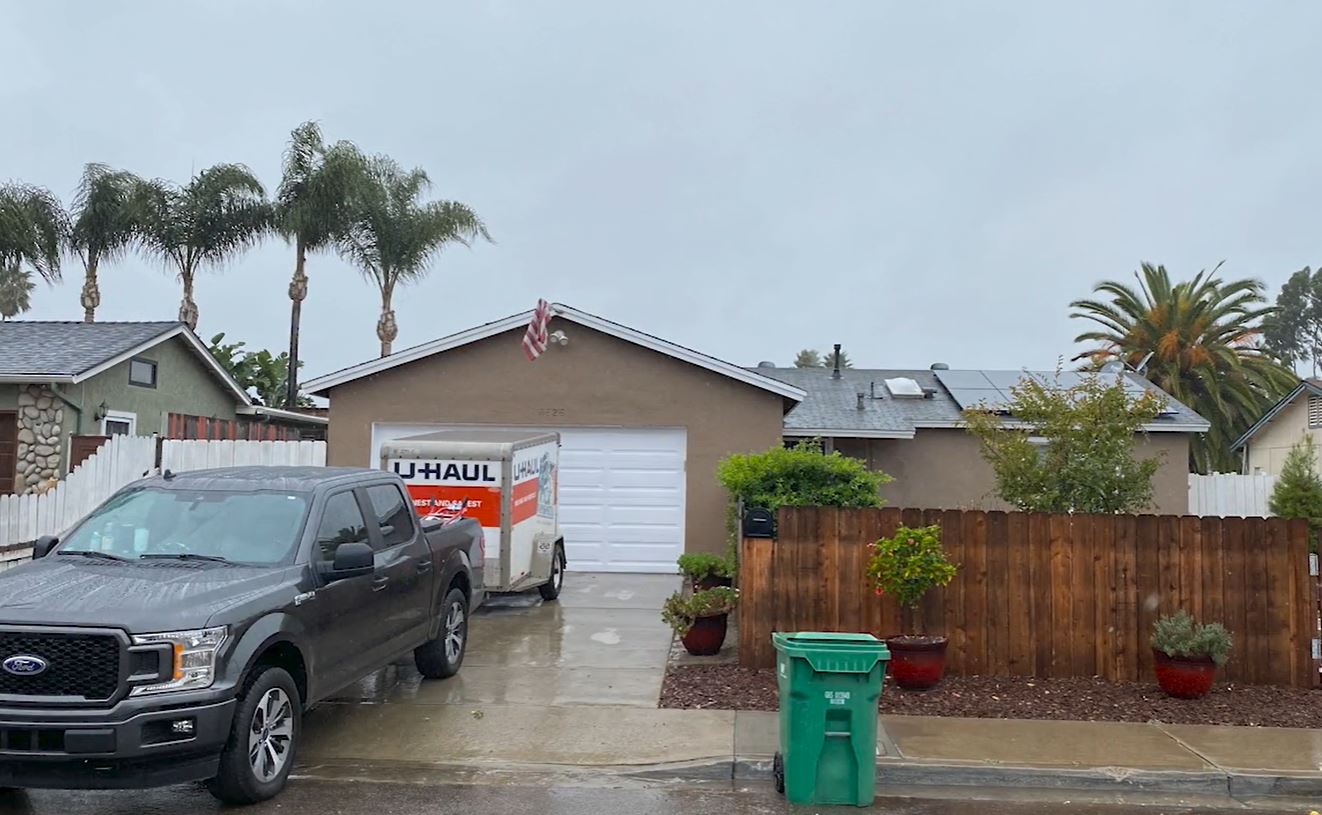
In October 2022, Fulton found Sherry Pollex’s website, sherrystrong.org. (Pollex, who died in September 2023, was the longtime partner of NASCAR star Martin Truex Jr. The two are forever connected to Novant Health since Pollex was treated for cancer at Novant Health and the couple gave $1.2 million to fund an emergency pediatric department and integrative medicine oncology clinic.)
Reading about the care Pollex received at Novant Health for her ovarian cancer helped convince Fulton that Novant Health was the place for her. She also liked what she read about UNC Chapel Hill’s medical school and the prominent oncologists it produces – some of whom are recruited by Novant Health.
The couple were thrilled when Brandon’s company transferred him to Monroe, North Carolina. They arrived in December 2022 and rented a home in nearby Charlotte.
‘Exactly what I needed’ in a doctor
They got settled just in time, Fulton said, as “there was a looming metastatic recurrence.”
Having researched gynecological oncologists, Fulton knew she wanted Dr. Kellie Schneider (highlighted in a 2023 story on ovarian cancer) – a cancer survivor herself. “She’s exactly what I needed – direct, no-nonsense and brilliant in her field,” Fulton said.
In March 2023, Fulton began having the symptoms – bloating, pelvic pain, urgency to urinate – she experienced in 2021. “I didn’t want to believe it was happening,” she said. But Schneider was monitoring her CA-125 biomarker for ovarian cancer. When it started climbing, a scan revealed the cancer was back.
“Dr. Schneider took my tumor to the ‘tumor board’ to get opinions from other oncological surgeons because my tumor was wrapped around my belly button. It’s a real comfort to know that not only is my case being looked at by my own doctor, but by other experts, too," Fulton said.
Dr. Nicholas Latchana, who specializes in complex surgeries, volunteered to operate on Fulton. (“He’s a trailblazer – so thorough and precise,” Fulton said.) She had her second debulking surgery in June 2023 – performed by Latchana – which proved to be a painstaking procedure. Oncological tumors can spread throughout the abdominal cavity as "satellite" cancers. In debulking surgery, the surgeon tries to find and remove every tiny tumor.
And she began chemo again, which she completed in late August. At that point, she was declared “NED,” meaning there was no evidence of disease.
A team comes together
Fulton’s care team includes pharmacists; nutritionists; therapists; oncologists such as Schneider and her PA, Kara Seeloff; and oncological breast surgeon, Dr. Peter Turk. Fulton has a breast lump Turk is closely monitoring. A mastectomy isn’t possible until she’s been in remission for two full years, but she plans to have one – and reconstruction – as soon as she hits that milestone.
Her team also includes clinicians you might not expect. Because Fulton had an allergic reaction to chemo and went into anaphylactic shock, a cardiologist, Dr. Tesfaldet Michael, was brought in to monitor her heart during her chemo regimen.
Fulton became a regular at Novant Health’s Cancer Wellness Center, where she’s “learned more than (she) ever thought possible about nutrition and exercise.” She said the Wellness Center and Integrative Medicine gave her “the mental, psychological and spiritual piece that was missing. They’re completely grant-funded, so you can exercise, attend nutrition and art classes, be part of drum circles – and it’s entirely free for three months.”
Fulton said the leader of the Novant Health Cancer Institute Integrative Medicine, Dr. Jeff Hardin, and pharmacist Dajen Williams, PharmD “take all the 'Dr. Google' information stored in my brain, discuss it and help me make sound, science-based decisions” while excluding the mountains of bad, confusing or irrelevant information.
“Ellyn was eager to learn about her disease and how best to take care of herself,” Williams said. “She came to me to learn if what she was taking was safe and effective. A lot of supplements are marketed as ‘cancer-fighting.’ And because so many are marketed as ‘all natural,’ many people presume they can’t do any harm.
“But they’re not FDA-regulated. Some have no known clinical benefit, and some can actually have dangerous interactions with prescription medications. Still others can interact with the disease state in a way that’s harmful.”
Hardin – who’s an M.D. and Ph.D. – said Integrative Medicine provides “‘damage control’ and builds up patients’ mind, body and spirit to be optimally healthy. Damage control is related to treatment and the side effects it can cause. Acupuncture, physical therapy, stress reduction, art and music help with the emotional side of cancer.
“We also help patients with the grieving process,” Hardin said. “There’s a mourning of the life they had before cancer.”

Fulton fully understands what she’s facing. “Now that I've had one recurrence, I’ve moved into the 92nd percentile for it coming back a third time,” she said. “So, I have to choose a healthy lifestyle.”
She’s on maintenance therapy in the form of a pill – Lynparza, which she takes twice daily – she’ll be on for up to three years.
Fulton speaks for many cancer survivors when she says, “Fighting cancer is not just about science.”
Indeed, the biggest difference she found in her care here versus in San Diego is Novant Health’s whole health scientific and integrative holistic focus. “In California, there was nothing related to the emotional or spiritual side of cancer,” she said.
Novant Health has treated more than Fulton’s cancer. Her team has cared for her physical, mental and emotional health, and they’ve helped show her it’s possible to live – fully and joyfully – with cancer.
 Through philanthropy, Novant Health is able to provide access to lifesaving care for more patients like Ellyn. A special thank you to Sherry Pollex, Martin Truex, Jr., Agnes B. and Edward I. Weisiger, and Claudia W. and John M. Belk, and all of our team member and community philanthropy partners who give meaningful gifts that accelerate, expand and enhance care for others through Novant Health Foundation. To learn more about your regional foundation, click here.
Through philanthropy, Novant Health is able to provide access to lifesaving care for more patients like Ellyn. A special thank you to Sherry Pollex, Martin Truex, Jr., Agnes B. and Edward I. Weisiger, and Claudia W. and John M. Belk, and all of our team member and community philanthropy partners who give meaningful gifts that accelerate, expand and enhance care for others through Novant Health Foundation. To learn more about your regional foundation, click here.
To make your own impact by helping to save and improve more lives, make a gift today.
Treating your whole self – not just your cancer
Ellyn Fulton is a big fan of Novant Health’s Cancer Wellness Center. She’s taken advantage of nearly all the services the center offers. It’s there that Fulton has learned about:
- Nutrition. Michelle Newell, the center’s nutrition manager, “has given me invaluable nutritional information, set goals and opened doors I never knew possible,” Fulton said.
- “Sarah Berkshire, registered dietitian, has educated my stubborn self into paying attention to labels and caring about what I put in my mouth. I never knew what a serving size was until Sarah. I essentially sat behind a desk for 23 years and never understood the importance of exercise. I won’t go back to my sedentary, fast-food-fueled choices I made for 30 years prior.”
- Exercise. “Natalie Fulton, exercise physiologist, has taught me the importance of exercise and how to do it safely. She’s shown me what I’m capable of.”
- Mind/body connection. “My oncological therapist, Shannon Crystal, helped me see that my disease is chronic and, every once in a while, it will flare up. That’s helped me … not see this as a death sentence. I still have life, and I can still live it and leave the worrying to the doctors.”
- Pelvic health. When she mentioned low libido (a possible result of cancer and its treatment), Hardin referred Fulton to a pelvic floor therapist. “Virginia Serruto has helped me navigate through … a side effect I didn’t see coming,” Fulton said.
- The comfort of a support group. Fulton joined the Teal Divas, founded by ovarian cancer survivor Shannon Routh. “Shannon sat with me while I was getting chemo,” Fulton said. “She’s been an integral part of my healing. The Teal Divas gather, walk 5Ks, laugh, cry, celebrate, support each other, gather for retreats, luncheons and events and honor legacies together.”





